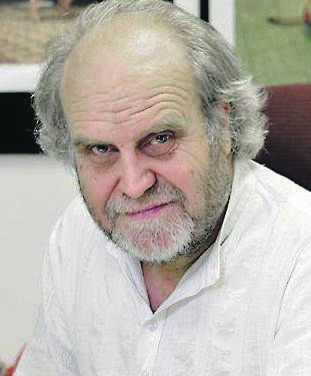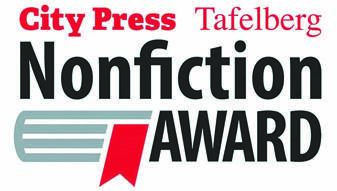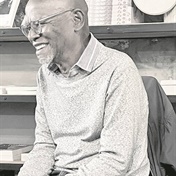
As an established writer who has already made a name for himself in the literary world, Harry Kalmer intends to divert from his usual works of fiction and will focus on writing about the life of anti-apartheid activist and ANC member Marius Schoon. As a finalist in the biennial City Press Tafelberg Award, Kalmer intends telling a very human and intimate story about the life of Schoon, something he hopes will allow readers to gain an insight into a more personal aspect of Schoon’s life, which hasn’t previously been written about.
Kalmer started writing at the age of 21.
“Writing is an ongoing thing for me. My mother loved literature and my father was a great storyteller, so I think those things greatly influenced me when I rediscovered reading when I was 21 as well. A book that you read at18 is different to a book you read at 60. The book that got me back into reading was Kurt Vonnegut’s Cat’s Cradle.”
Kalmer said that what was most compelling about Schoon’s story was the way that he turned out in other people’s stories.
“When I did research on Bram Fischer many years ago, so many people spoke well about Marius; they said charming things. Then I realised that he was friends through friends, although I had never met him,” Kalmer said.
In 2013 Kalmer’s play The Bram Fischer Waltz won the Standard Bank Silver Ovation Award and in 2015 the Adelaide Tambo Award for Celebrating Human Rights through the arts. The human rights aspect is something that also drew Kalmer towards Schoon’s story. Last year he was named the recipient of the Barry Ronge Fiction Prize for his book, A Thousand Tales of Johannesburg.
Schoon, who died in 1999, suffered tragedy in its most brutal form. His first wife, Diana, committed suicide and his second wife, Jeanette, and six-year-old daughter Katryn were killed after a letter bomb was planted in their flat in Angola. His son Fritz, who was two at the time, survived the bombing and the two made their way to Ireland, where he eventually met his third wife, Sherry Mclean. It was through Mclean that Kalmer was introduced to Schoon’s family archives.
“I finally met his [Schoon’s] wife about two or three years ago at a party and she told me about the archives that the family had, and once I sat down to write about him, I realised it was quite complex,” Kalmer said.
In one of the proposed chapters of the book, Kalmer writes about an uncomfortable interaction with Craig Williams, an apartheid government spy and the man who had posted the letter bomb that would eventually murder Schoon’s wife and daughter. Williams had admitted at the Truth and Reconciliation Commission (TRC) hearings to sending the parcel bomb to Schoon’s home. Kalmer writes: “My wife and I looked at each other. We were not the only ones who recognised the killer. He had been in the news, confessing to his crimes in the Truth and Reconciliation hearings that were being broadcast on television. Two tables away a couple made a point of turning in their chairs to stare at him.”
This incident, which took place almost 20 years ago at a restaurant near their home, was a pinnacle moment for Kalmer and his own family, who were merely looking to have a quiet family dinner that night.
“He sat down at a table next to my wife, son and I, and my wife and I obviously started talking about it. My son, who was eight years old at the time couldn’t quite understand what we were on about and he asked what was wrong. I said: ‘That guy killed so many people.’ And my son asked me why he was free. We had to explain the entire thing and talk about it, and we got into reconsidering the entire TRC process. So, there are many things that triggered an interest, and that has kept the interest in Schoon’s story alive,” Kalmer said.
The archives, Schoon hopes, will allow him to tell a more human story about Schoon.
“His wife liked the idea, but she said that she would have to discuss it with Marius’ children and there was quite a bit of discussion that took place. It took them quite a while to respond to my proposal and, of course, its not an easy choice to make; they are weary. I will be respectful in what I write but his family did a lot thinking before they were 100% on board with this project. I do think they are an important portal to Marius’ story and it would be nice to get them on board,” Kalmer said.
For Kalmer, the story of Schoon is about the man and the complexities which he embodied. “I think the history speaks for itself. I also think that beyond the history, there are human stories which are incredibly compelling, and I think that Marius’ is one such.”




 Publications
Publications
 Partners
Partners









